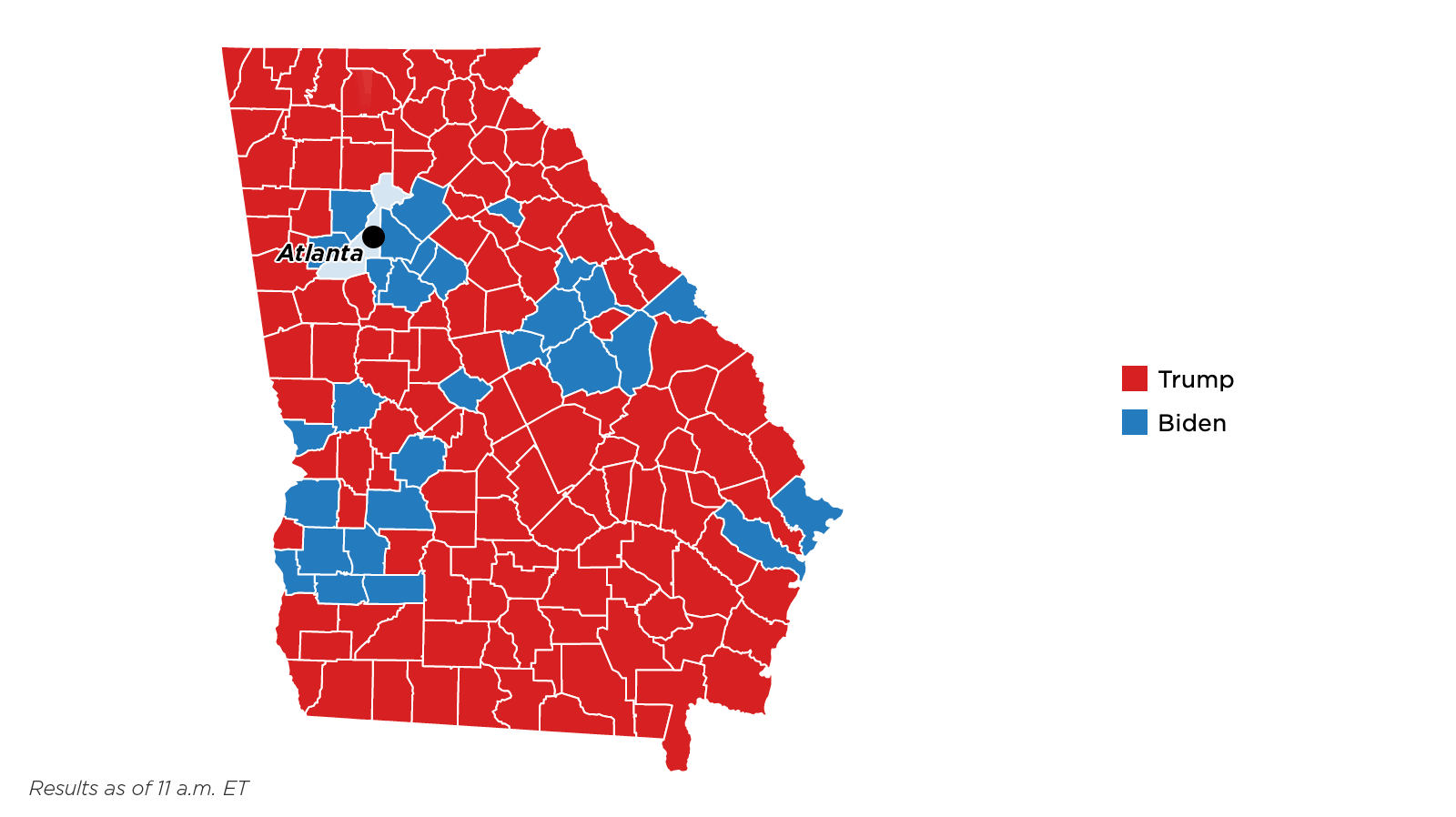By Andrew Wyatt
Prior to this year’s midterm elections, political media and election forecasters predicted an electoral blowout for Republicans across the United States. Weeks before the election, Blake Hounshell of the New York Times warned that “Red October” had arrived. Similarly, Sabato’s Crystal Ball, a premier election handicapper, predicted Republicans to pick up 24 seats in the House and make gains in the Senate and governorships.
By all means, Georgia Republicans had a good election night. They won every race for statewide office, triumphed in nine of Georgia’s fourteen U.S. House districts, and retained control of the state legislature.
However, despite these wins, Georgia Republicans failed to gain a much-needed Senate seat on Election Day, with Herschel Walker and Sen. Raphael Warnock heading to a runoff on December 6. Moreover, when examining the numbers, we find that the anticipated “Red Wave” did not crash in Georgia.
Generally speaking, for a wave election to occur, a political party makes significant gains in the number of races they win. Typically, for a party to do this, they must significantly outperform their constituency’s partisan lean. Overall, the idea of partisan lean is to gauge how Republican or Democratic an area is compared to the rest of the nation.
According to FiveThirtyEight, Georgia’s partisan lean is R+7.4. This means that in a neutral political environment nationwide, Georgia would vote for Republican candidates by a margin of 7.4%. In a wave election, Republicans would probably win Georgia by upwards of 12%. This neither happened in Georgia nor the Athens metropolitan area in this year’s midterm elections.
Statewide Races
Among the statewide races, Republican candidates won by an average of 6.4%, an underperformance of 1% compared to what the partisan lean would expect. This relative underperformance indicates a near-neutral environment in Georgia, where Democrats slightly exceeded their usual baseline.
The topline races bolster this notion. In the Senate election, Warnock vastly outran the state’s partisan lean by 8.3%. Warnock also expanded on President Biden’s 2020 victory by 0.7%, mainly by improving on margins in the Atlanta metro area. However, the Senate race will head to a runoff because Warnock did not surpass 50% of the vote, receiving 49.4%.
Meanwhile, in the gubernatorial election, Kemp defeated Stacey Abrams by 7.6%,
practically in tandem with Georgia’s partisan lean. Even more, Kemp outran President Biden’s win by 7.8% with shifts toward the Republican in nearly every county in the state.
Moreover, Democrats surpassed FiveThirtyEight’s predicted results, which are calculated using a complex algorithm and multiple data inputs. In the Senate race, FiveThirtyEight forecasted Walker to edge out Warnock by a margin of 1.2% on election night, but both candidates to still move on to a runoff. However, Warnock bested Walker by 0.9% on election night, exceeding FiveThirtyEight’s expectation by 2.1%.
In the Governor race, FiveThirtyEight forecasted Kemp to win by 8.2%. While Kemp still won the race outright by 7.6% on election night, he underran FiveThirtyEight’s prediction by 0.6%.
U.S. House Races
Georgia’s U.S. House races point towards an even stronger Democratic overperformance across Georgia. Of all votes cast in each of Georgia’s fourteen congressional districts, voters preferred Republican candidates by 4.7%, a 2.7% statewide underperformance for them.
The weakest result came from Rep. Majorie Taylor Greene in GA-14, who posted a 13.4% underperformance, likely due to her unpopularity. However, not just Republican unpopularity bolstered Democratic candidates, as nine of them in other districts also exceeded their district’s partisan lean. For example, Rep. David Scott of GA-13, which includes the southwest suburbs of Atlanta, posted a robust 11% overperformance as well.
In addition, Democrats exceeded FiveThirtyEight’s expectations in every U.S. House race in Georgia. Democrats, on average, outpaced FiveThirtyEight’s predicted margins by 6.9%. The strongest overperformance came from Rep. Nikema Williams who surpassed FiveThirtyEight’s model by 16.3% in the GA-05, which includes much of the city of Atlanta. Other strong Democratic performances, again, came in GA-13 and GA-14 with 14.5% and 11.4% overperformances, respectively.
Statewide Races in the Athens Metro Area
Statewide shifts also somewhat translate to the Athens metropolitan area (including Clarke, Madison, Oconee, and Oglethorpe counties). In Clarke county, Walker underran Trump by 2.1%. However, the Athens metro as a whole shifted to Walker by 1%, primarily due to a reduced Democratic base turnout in Clarke and Walker improving the margin in Oconee.
As for the gubernatorial race, Kemp swamped Trump’s performance in the Athens metro, with an 8.6% shift to the governor in Clarke alone. In the Athens metro, Kemp totaled an even larger 11.4% shift, powered by a robust 14.4% improvement in Oconee.
Georgia’s Tenth Congressional District in the Athens Metro Area
In GA-10, which includes all of Athens metro, Republican Mike Collins handily defeated Democrat Tabitha Johnson-Green. Still, Collins underran the district’s R+31.2 lean by 2.4%. However, in Clarke, Collins improved over Biden’s performance by 5% and bested Biden’s margin by 7% in Athens metro overall.
Conclusion
In sum, Georgia Republicans have a lot to be happy about: they kept their trifecta in the state government, won in many of the state’s congressional districts, and even have one last chance to push Walker into the Senate. Nonetheless, Republicans did not put up the number statewide to attain the “red wave” many of them were expecting. Instead, they ended up underrunning the state’s partisan lean and forecaster expectations in several statewide races and underran the partisan lean and predictions in most of Georgia’s congressional districts.
In Athens, the picture is a little murkier. Republicans saw firm shifts to them in the Governor and GA-10 races compared to 2020. However, those shifts did not pass over to the Senate race. Simply, Republicans did not put up consistent enough numbers to claim that a wave hit the shore.


